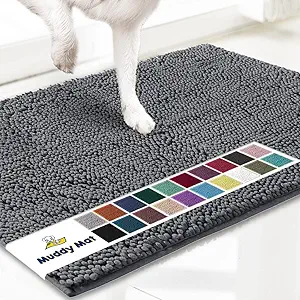As your beloved dog enters their golden years, their needs start to shift. Senior dogs deserve just as much love, attention, and tailored care as they did when they were puppies — maybe even more! With the right approach, you can ensure your older pup stays happy, healthy, and comfortable for years to come. If you’ve been wondering how to care for a senior dog, this guide covers all the essentials.
1. Prioritize Regular Vet Checkups
One of the best things you can do for your aging dog is stay on top of veterinary visits. Older dogs are more prone to age-related health issues like arthritis, dental disease, heart problems, and cancer. Regular checkups (ideally every 6 months) allow early detection and give you peace of mind.
✅ Tip: Ask your vet about senior-specific blood panels, mobility assessments, and dental cleanings.
2. Maintain a Balanced Senior Dog Diet
Senior dogs often have different nutritional needs than younger pups. Their metabolism slows, and they might be less active, meaning fewer calories but more joint, heart, and immune-supportive nutrients.
Look for:
- Foods high in omega-3 fatty acids for joint and skin health
- Added glucosamine and chondroitin for mobility
- Easily digestible proteins and limited fillers
Always transition to new food gradually and consult your vet before making diet changes.
3. Keep Them Moving With Gentle Exercise
Exercise is still vital for senior dogs, but the intensity and duration should be tailored to your dog’s comfort level. Regular movement helps prevent stiffness, maintain muscle tone, and keep their weight in check.
Try:
- Short, frequent walks
- Swimming (great for joints)
- Light indoor play sessions
Watch for signs of fatigue or discomfort and adjust their routine as needed.
4. Create a Comfortable Living Environment
Aging dogs often experience joint pain, arthritis, or reduced mobility. Small adjustments around the home can make a world of difference.
Consider:
- Orthopedic dog beds for extra support
- Non-slip rugs or mats on slippery floors
- Ramps or pet stairs for furniture or cars
Creating a cozy and accessible space reduces the risk of injury and boosts their daily comfort.
5. Focus on Mental Stimulation
Senior dogs can experience cognitive decline, much like humans. Keeping their brain active helps maintain sharpness and prevents boredom.
Fun ideas:
- Puzzle toys
- Training refreshers
- Gentle games like hide and seek or scent-based activities
A mentally stimulated dog is a happy dog, no matter their age.
6. Support Their Health With Supplements
Many senior dogs benefit from supplements, especially for joint health, immune function, and cognitive support. Always consult your vet before introducing new supplements.
Popular options:
- Omega-3 fish oils for inflammation and skin health
- Glucosamine and chondroitin for joint support
- Probiotics for digestion
- Antioxidants for cognitive function
7. Shower Them With Love and Patience
Perhaps the most important part of senior dog care is emotional support. Aging dogs might move slower, develop quirks, or need more help — but your bond will only deepen. Make time for snuggles, belly rubs, and quiet companionship.
Your love and presence can ease anxiety and provide a sense of security as they adjust to life as a senior.
Caring for a senior dog is all about balance: respecting their changing needs while celebrating the joy they bring. With regular vet visits, nutritious food, low-impact exercise, cozy accommodations, and endless affection, your older pup can enjoy their golden years with grace and happiness.









